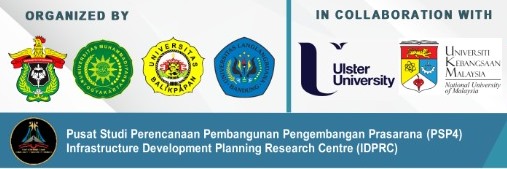A Short Review of the Energy Fulfillment Strategy in the Development of Nusantara's Capital City
DOI:
https://doi.org/10.36277/icasgi.vi.7Keywords:
Energy, Fulfillment, StrategyAbstract
The territory in East Kalimantan has been declared as the future State Capital (IKN) of the Indonesian Republic. Energy will be one of the greatest obstacles to the functioning of the new IKN. How will the IKN's energy demands be met in the future? How should energy be used there in line with the principles of efficient energy use? Kalimantan has vast deposits of nonrenewable (fossil) and renewable energy sources, but "energy availability" will not be a major concern for the future capital city. The infrastructure of the capital city must be maintained, as new cities (ports, airports, etc.) will expand swiftly. Energy connection between provinces, as well as intra-province connectivity, must be significantly expanded/improved. It is necessary to adhere to the requirements for developing and expanding energy use, for instance in accordance with policy directives regarding Low Carbon Development and Sustainable Development Goals. Kalimantan's role as Unitary State of the Republic of Indonesia means it must adhere to the following fundamental policies:. Relying on local sources, including fossil fuels and non-fossil resources, wherever feasible. Avoiding imports from neighbouring islands, particularly lowering international crude oil shipments. Prioritizing the usage of renewable and clean energy sources, such as water (hydropower), PV (photovoltaic, solar power), and biomass, with priority. Develop/reinforce the connectivity of energy infrastructure throughout all of Kalimoantan, both for electricity and other energy infrastructure.
Downloads
Published
How to Cite
Issue
Section
License
Copyright (c) 2022 ICASGI : INTERNATIONAL CONFERENCE ON APPLIED SMART AND GREEN INNOVATION

This work is licensed under a Creative Commons Attribution 4.0 International License.

















